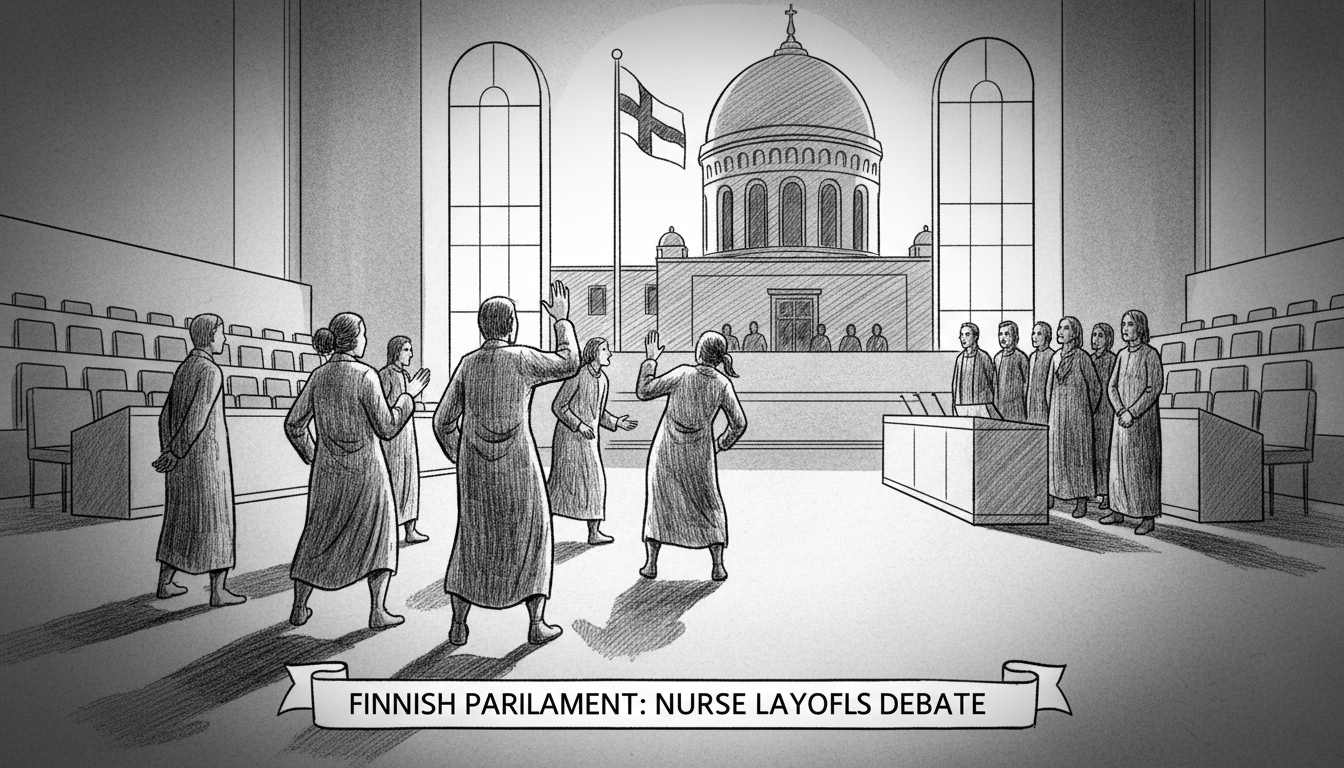Finland's parliament witnessed heated exchanges as lawmakers clashed over planned mass layoffs of healthcare workers. The opposition Left Alliance and Social Democrats confronted Prime Minister Petter Orpo's government about thousands of impending nursing job cuts across welfare regions.
During Thursday's question time, tensions escalated dramatically when Prime Minister Orpo presented his solution to the nursing crisis. He urged welfare regions to prioritize cuts elsewhere before reducing healthcare staff. "I hope nursing staff will be protected to the very end because we need them," Orpo stated.
The parliamentary left wing responded with such loud protests that individual comments became indistinguishable. Speaker Paula Risikko repeatedly called for order in the chamber. This confrontation reflects deeper tensions in Finland's coalition government as it navigates healthcare restructuring.
Finance Minister Riikka Purra faced sharp questioning about remote work policies in elderly care. Left Alliance MP Aino-Kaisa Pekonen challenged Purra's recent social media comments criticizing remote work productivity while proposing elderly care cuts that would replace home visits with remote consultations.
Purra dismissed opposition concerns as "populism" and "quite a concoction." She avoided answering directly about remote work policies, instead emphasizing the four billion euros in additional funding provided to welfare regions. Purra redirected the conversation toward wage harmonization in healthcare, which has increased costs.
The climate crisis briefly entered discussions, with Green MP Oras Tynkkynen questioning whether the government takes seriously scientific warnings about Atlantic current collapse potentially causing Nordic cooling. Both Orpo and Climate Minister Sari Multala acknowledged the risk but emphasized Finland's focus on exporting clean technology as its primary contribution to climate mitigation.
This parliamentary showdown occurs against the backdrop of Finland's ongoing healthcare reform, where 21 new welfare regions replaced older municipal-based systems in 2023. The restructuring aims to control healthcare costs but has created uncertainty for approximately 200,000 healthcare workers. Previous nursing strikes in 2022 already highlighted systemic tensions in Finland's cherished welfare model.
The government faces a difficult balancing act between fiscal responsibility and maintaining quality healthcare services. With an aging population increasing demand for care, these nurse layoffs could strain Finland's healthcare system during winter months when respiratory illnesses typically peak. International observers watch closely as Finland navigates these challenges while maintaining its reputation for high-quality social services.

